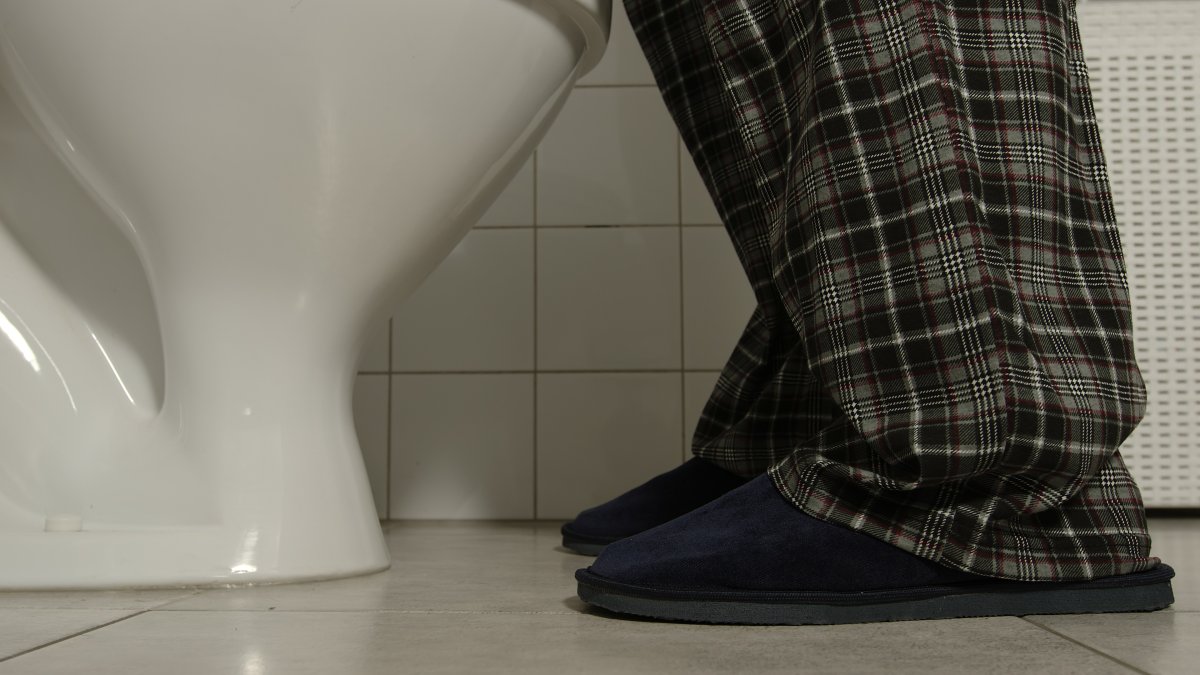If you're annoyed by how many times you get up at night to go to the bathroom, it may have to do with your screen habits.
People who spend too much time glued to movies, TV shows, or YouTube videos may be more prone to needing to pee during the night, research has found.
Nocturia, or the need to pee multiple times during the night, may be linked to spending 5 or more hours a day watching movies, TV, or videos online, according to a new paper in the journal Neurourology and Urodynamics.
"Our research showed that individuals who spent 5 or more hours a day watching TV and/or videos were significantly more likely to develop nocturia," the authors wrote in the paper.

The paper reveals that—according to data gathered from 13,294 US individuals aged 20 and older between 2011 and 2016—32 percent of people experienced nocturia, while 68 percent did not. They also found that people who had spent 5 hours or more watching TV or videos during the day had a 48 percent greater risk of experiencing nocturia than those who watched less than 1 hour a day.
Nocturia can lead to loss of sleep, and therefore increase the risk of several health issues as a result.
"Nocturia not only elevates the likelihood of diseases such as hypertension, cardiovascular disorders, and mortality but also contributes to a significant economic burden on society," the authors wrote. "Consequently, nocturia has emerged as a critical public health concern, necessitating comprehensive attention and interventions."
Nocturia becomes more common as people age, often due to changes in bladder function and capacity: 50 percent of adults older than 50 suffer from it to some degree. It can often be a symptom of another condition, such as diabetes, urinary tract infections (UTIs), enlarged prostate (in men), overactive bladder, heart disease, kidney disorders, and neurological disorders. It can also occur as a result of taking certain medications, including diuretics, antihypertensives, sedatives, and muscle relaxants.
Treatment for nocturia depends on its underlying cause. In some cases, lifestyle changes such as limiting fluid intake before bedtime, avoiding caffeine and alcohol in the evening, and practicing bladder training exercises may help reduce symptoms. Addressing underlying medical conditions and adjusting medications may also be necessary.
The paper does not delve into whether it is exposure to screens in general that may be linked to nocturia—which would be higher for those who work on computers—or if it is specifically watching videos, however.

This research hopes to highlight some ways that those suffering from nocturia can be helped to regain the ability to sleep through the night.
"As individuals increasingly engage in screen‐based activities, a comprehensive understanding of the impact of extended TV and/or video time on patterns of nocturia is crucial for both healthcare professionals and public health practitioners," the authors wrote in the paper.
"For individuals who engage in prolonged TV and/or video time, healthcare professionals can offer behavioral intervention recommendations, encouraging appropriate screen time management."
Do you have a tip on a science story that Newsweek should be covering? Do you have a question about nocturia Let us know via science@newsweek.com.
Uncommon Knowledge
Newsweek is committed to challenging conventional wisdom and finding connections in the search for common ground.
Newsweek is committed to challenging conventional wisdom and finding connections in the search for common ground.
About the writer
Jess Thomson is a Newsweek Science Reporter based in London UK. Her focus is reporting on science, technology and healthcare. ... Read more





